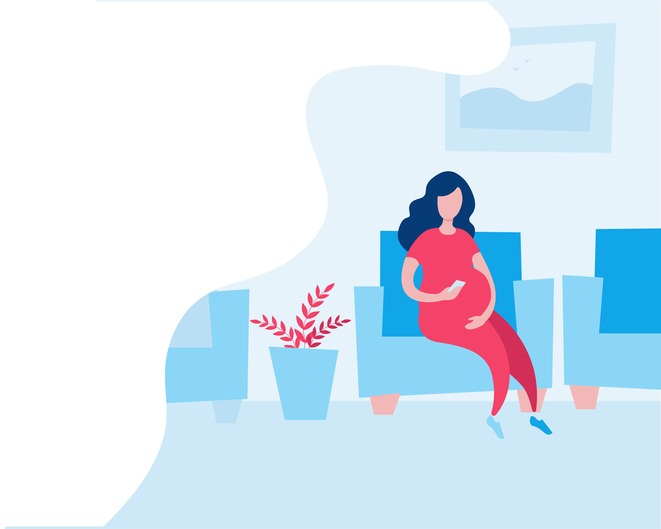
Marian Knight, professor of maternal and child population health, and Nicola Vousden, registrar in public health, discuss research around pregnancy
CREDIT: This is an edited version of an article that originally appeared on The BMJ
It is now almost two years since the UK Obstetric Surveillance System (UKOSS) national study of hospital admission with COVID-19 in pregnancy was activated, and 20 months since the first publication from the study with its linked opinion piece.
With more than 900 published scientific studies of COVID-19 in pregnancy – of highly varying quality – we are still left with questions to answer. In relation to that first UKOSS research publication, while it was clear that some pregnant women had severe COVID-19, and a few died, we were largely reassured that outcomes for women and babies were good.
As the latest publication from the study shows, however, situations change, and it is clear that both pregnant women admitted to hospital, and their infants, had poorer outcomes of COVID-19 during the periods in which the alpha and delta SARS-CoV-2 variants were dominant.
It is telling that of the 900+ studies published, none are reported to be ‘high quality therapeutic trials in pregnancy.’ As we were writing this piece in January 2022, deaths of unvaccinated pregnant or postpartum women from COVID-19 were recorded in the UK. Almost two years into the global pandemic we continue to see the very real consequences of the exclusion of pregnant women from COVID-19 vaccine trials, resulting in confused messaging around vaccine safety in pregnancy, and the subsequent lack of initial collection of – and then delayed publication of – data on pregnant women’s outcomes after they were included in routine vaccination programmes.
This is despite 2018 guidance from the Pregnancy Research Ethics for Vaccines, Epidemics, and New Technologies (PREVENT) Working Group recommending the ‘presumption of inclusion’ of pregnant women in vaccine studies and programmes, together with incentive mechanisms to stimulate research and development including pregnant women.
Our latest study shows that even critically ill pregnant and postpartum women are not receiving evidence-based therapies for COVID-19, such as steroids, which are standard care for non-pregnant people. We have tried to maintain the ‘presumption of inclusion’ of pregnant women in the RECOVERY trial, precisely to prevent such inequitable care, but it continues to be a battle.
Pregnant women were moved into an ‘at risk’ group for priority vaccination in the UK in December 2021 when these data on escalating disease severity and maternal deaths in unvaccinated pregnant women during the delta period became clear.
As researchers we will always question whether there is more we could have done sooner that might have prevented these women and babies from dying. Were we wrong to be reassuring about the initial outcomes of COVID-19 for pregnant women in that first wave? Emphasising the negative outcomes rather than the positive may have raised awareness among policy-makers, but at what cost to stress levels for pregnant women, and potential indirect effects from antenatal visits missed out of fear of COVID-19? We will never know.
In another overlap between the personal and the professional, one of us (NV) gave birth to one child in the first year of this study and another in the second. Those questions around vaccine safety in pregnancy due to the lack of published evidence and exclusion of pregnant women from the vaccine trials were all too real. The positive advantage of working on the study was the fact that it showed, very clearly, the strongly protective effect of vaccination in pregnancy against severe disease and, hence, provided early access to the good news.
This study was one of nine set up and ‘hibernated’ nine years before the start of the pandemic; the ‘presumption of inclusion’ in the suite of studies at that time meant that we have had comprehensive observational information to guide the care of women hospitalised with COVID-19 in pregnancy in the UK throughout the past two years.
Perhaps the only way to safeguard the ‘presumption of inclusion’, going forward, in vaccine and therapeutic trials is to ensure that, in a similar manner, specific, funded plans for such trials including pregnant women are developed and hibernated now. Only then will the PREVENT aspirations become a reality.



Be the first to comment